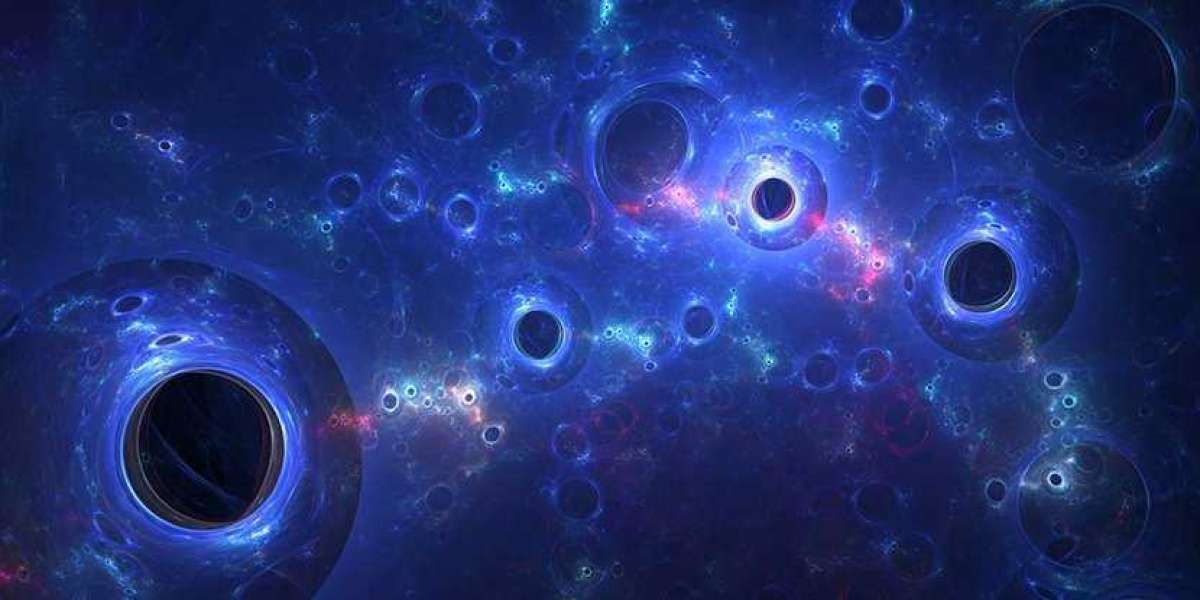What would it be like if every particle in your body converted into a dark matter particle? And how long could you last in that state?
Everything that we can see in the universe is a massive mashup of electrons, protons and neutrons fused into atoms. It's what's called baryonic, or just ordinary matter. Your body is made up of it, too. But there is a lot of stuff out there that we don't see, stuff that we call dark matter and dark energy. If you were to undergo a dark matter transformation, your existence, as you know it, would come to an end instantly.
But as compensation, you'd get the ability to move through virtually anything you want before we change your body composition. Let's make some things clear. There's no concrete proof that dark matter exists, and we currently have no technology available to find that proof. So how can we know about dark matter in the first place? Well, if you run some cosmic calculations based on physics as we know it, it turns out that the amount of visible material in n the universe doesn't add up.
Here's an example. A spiral Galaxy like the one we live in has stars at its outer edges. According to what physics says, these stars should be moving at a much slower pace compared to the ones close to the Galactic Center. But in reality, all stars in the Galaxy seem to be orbiting its CenterPoint at almost the same speed. Scientists think that that's dark matter influence using the effects of gravity and making the stars move the way they do.
Dark matter doesn't interact with ordinary matter at all. It's invisible to electromagnetic radiation and light. The only thing that makes scientists think dark matter exists is its gravitational effects on galaxies. Scientists also think that dark matter outweighs visible matter by approximately 6 to 1, making up 27% of the universe. Now, Let's get back to your dark matter transformation.
If you're of an average weight to, say, 70 kilograms, your body has about 7,000,000,000 billion billion atoms in it. Your atoms form molecules. Molecules form cells, and cells form vitals that you can see with your eyes, like your organs. If all of your ordinary matter atoms switched to dark matter atoms, your physical body would disintegrate. Without ordinary matter, there would be nothing to glue your atoms together anymore.
But this wouldn't be the end of your story.
You'd become invisible, and your body wouldn't appear as a collective hole. But your dark matter particles would still interact gravitationally trapped by Earth's gravity. Those particles would start an endless marathon around the Center of Earth's gravity. The core. They'd be circling in an elliptical orbit at the speed of three kilometers per second.
Every 88 minutes, your dark matter would make a whole circle back to the place of your transformation. The dark matter particles that used to be you would slowly drift over time. On your first dark matter birthday, your particles would show up about a half meter from the spot where they were born. After 10 years, that distance would be half a kilometer. That's because dark matter, you wouldn't be influenced by our planet's rotation.
Dark matter is only affected by gravity. There would be no energy or momentum loss. You would never reform to become an ordinary matter. You again. You would just keep circling around the Earth's core.
Of course, nothing can turn you into a dark matter entity in real life. But that doesn't mean that there's no dark matter around you. The mathematics behind it can get somewhat complex. But scientists have estimated that the average person has 10 to the power of negative 22 kilograms of dark matter in their body. At any given time throughout your life, approximately one milligram of dark matter will pass directly through you.
So while technically you can never be entirely made up of dark matter, it's incredible to think about how something we don't know much about could be so close to us, even part of us. There is so much to learn about the universe and how it behaves.








